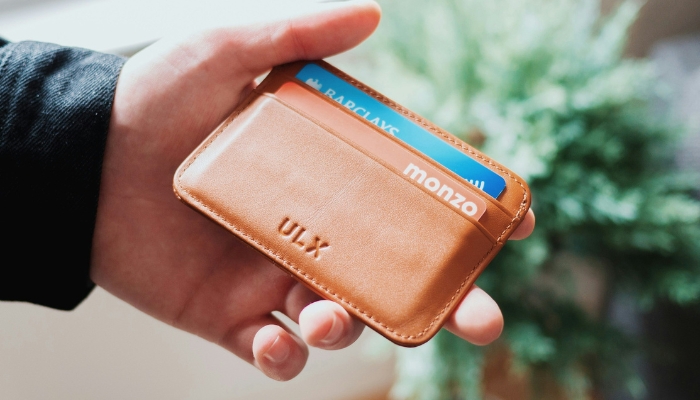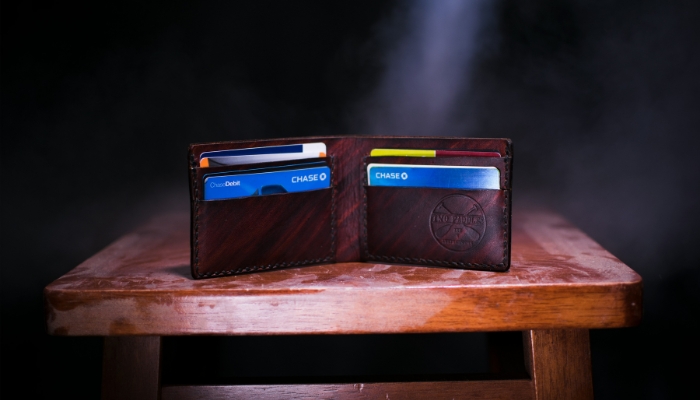
In the realm of personal finance, the incidence of identity theft has surged, with perpetrators often exploiting the unsuspecting victim’s address to secure credit cards fraudulently. Such an act not only breaches personal security, but also potentially damages the victim’s credit standing.
If you discover someone is using your address for a credit card, it’s crucial to act quickly. Report the issue to the credit card company, check your credit reports for unauthorized activities, and consider a credit freeze. Additionally, file a report with the police and the FTC. Regular monitoring of your credit and bank statements is essential to prevent further fraud.
What happens when you find yourself in this troubling situation, and how should you respond? Let’s explore this pressing issue ”someone using my address for credit card” further, which may well serve as the impetus for a comprehensive discussion on identity theft and its implications.
Understanding Identity Theft
Identity theft, a rapidly evolving crime in the digital age, often includes address manipulation fraud, involving the unauthorized use of another individual’s personal information, often for financial gain. The complexity of this crime lies in its ability to seamlessly blend into the victim’s routine, making early detection a challenge. Recognizing the signs of identity theft, such as unexpected credit card charges or unexplained account activity, is crucial in its mitigation.
Anyone can fall victim to identity theft. However, taking steps towards identity theft protection can significantly reduce the risk. This includes regularly monitoring your financial statements, installing reputable security software on digital devices, and avoiding public Wi-Fi networks when accessing personal or financial information.
The consequences of identity theft can be severe, ranging from financial loss to damaged credit ratings. In many cases, victims spend considerable time and resources to rectify the situation, often facing emotional distress in the process. Therefore, understanding identity theft helps individuals to remain vigilant towards suspicious activity and promptly report any suspected incidents. Informed vigilance is a crucial step in safeguarding one’s personal and financial security in the digital age.
How Fraudsters Use Your Address?

In the realm of financial fraud, your physical address serves as a valuable tool for fraudsters seeking to exploit your personal information. By using your address without permission, they are able to create fraudulent accounts, perpetrate credit card fraud, and contribute to the growing issue of address fraud.
Your address provides a crucial piece of information that criminals need to successfully commit identity theft. In many instances, they can use it, combined with other stolen data, to apply for credit cards or loans in your name. The bills and statements for these fraudulent accounts typically get mailed to your address, hidden amongst your legitimate mail.
When these unauthorized activities occur, individuals often remain unaware until they receive an unexpected bill or identity theft report. This delay in detection gives fraudsters ample time to utilize the resources they’ve fraudulently accessed, often leaving victims with damaged credit scores and a complex recovery process.
Address fraud is a serious crime with severe penalties; however, its prevention largely depends on the vigilance of individuals in protecting their personal information and promptly reporting any suspicious activities.
Identifying Credit Card Fraud Signs
Recognizing the signs of credit card fraud can be an effective first line of defense against the unauthorized use of your address and personal information. It is crucial to stay vigilant and regularly monitor your credit card statements for any suspicious activity.
One of the most telltale signs of fraud is a fraudulent charge on your statement. This could be a small, seemingly insignificant amount, or a large, unusual purchase. Either way, any transaction that you do not recognize should be treated as potentially suspicious.
Another red flag is if your credit card issuer contacts you about unusual activity or attempted transactions that you haven’t authorized. This can indicate that someone is testing the waters to see if they can make purchases using your details without arousing suspicion.
In addition, if you start receiving mail or packages at your address that you did not order, this could be a sign of address fraud linked to credit card misuse. Credit card fraudsters often use stolen addresses to receive products bought with stolen card information.
Steps to Take Immediately

Upon detection of any potential credit card fraud, prompt action is essential to mitigate possible damages. If someone is using your address for their credit card transactions, you have become a victim of fraud.
In such cases, you need to be proactive and take immediate steps to protect your credit health. Here are four steps to handle this situation:
- Report the issue to the local police: It’s vital to have a record of the fraudulent activity. This will be useful when dealing with credit card companies and their fraud departments.
- Monitor your accounts: Regularly check all your financial accounts for any unauthorized charges. This will help you catch any fraudulent transaction in its early stages.
- Freeze your credit: This prevents potential identity thieves from opening new accounts in your name.
- Document everything: Keep all records relating to the fraud. This includes any correspondence with credit card companies or police reports.
Contacting Credit Card Companies
How should you approach contacting credit card companies when your address has been used fraudulently? It is crucial to handle this situation promptly and professionally. Start by gathering any evidence of the fraudulent activity, such as unauthorized transactions on your credit reports. With this information in hand, reach out to the credit card companies and inform them about the issue.
When contacting credit card companies, be clear and concise about the fraudulent activity linked to your address. Explain the situation, provide any relevant information such as the unauthorized transaction details, and request that they investigate the matter. Also, ask them to place an alert on your account to prevent further fraudulent activity.
Simultaneously, it is beneficial to contact the credit bureaus and inform them about the fraudulent use of your address. They can place a fraud alert on your credit reports, making it harder for identity thieves to open more accounts in your name. Remember, maintaining an open line of communication with both credit card companies and credit bureaus can help protect you from further unauthorized transactions and potential damage to your credit score.
Reporting to Law Enforcement
In addition to notifying credit card companies and bureaus, it is equally important to report the fraudulent use of your address to law enforcement authorities. Doing so helps hinder the illegal activities associated with credit card theft and protects you from potential liabilities.
Here are a few steps to consider when reporting to law enforcement:
- File a police report: Be prepared to provide as much information as possible. The more details you can provide, the better chance law enforcement has of catching the perpetrator.
- Document fraudulent purchases: Keep a record of all fraudulent charges. This will provide evidence of the crime and could aid in the prosecution of the offender.
- Regularly monitor your credit reports: This will help you spot any new fraudulent activities quickly, allowing you to report these to both the police and your credit card company promptly.
- Cooperate with the investigation: This may include providing additional information or testifying in court if necessary. Cooperation is crucial to help law enforcement put a stop to credit card theft.
Taking these steps not only aids the law enforcement in their investigation but also helps you regain control over your financial security.
Repairing Your Credit Score

Restoration of your credit score, after the unfortunate event of credit card fraud, demands meticulous attention and an action-oriented approach. It all begins with a thorough credit check to identify any unauthorized credit card accounts opened in your name. Once identified, these should be immediately reported to the respective financial institutions for closure, and the fraud activity should be disputed with the major credit bureaus.
Repairing your credit score involves consistent monitoring of your credit reports to ensure that all fraudulent activity has ceased and that the credit bureaus have updated your information accordingly. If the fraudulent accounts persist on your credit reports after dispute, don’t despair. It’s within your rights to request the credit bureaus to block information that results from identity theft.
Preventing Future Address Misuse
While rectifying credit scores and unauthorized credit card accounts is crucial, it is equally vital to prevent future misuse of your address to safeguard your financial identity. Address scams are becoming increasingly prevalent, and it is paramount to implement measures aimed at preventing future address misuse.
These measures can include:
- Permanent Address Updates: Regularly update your permanent address with all financial institutions, utility providers, and other organizations that need your accurate contact information.
- Address Requests: Be cautious of unsolicited address requests. Always verify the identity of the requester to avoid falling victim to an address scam.
- Secure Mailbox: Ensure your mailbox is secure and promptly collect your mail to prevent theft.
- Address Verification Services: Use address verification services to confirm your address on record is accurate and has not been changed without your consent.
The key to preventing future address misuse is vigilance. Stay alert to any suspicious activity related to your address and take swift action to rectify any issues. By doing so, you can significantly reduce the risk of your address being used for fraudulent activities.
Conclusion
Address misuse for credit card fraud is a serious form of identity theft. Immediate action, including notifying credit card companies and law enforcement, is critical. Repairing one’s credit score may require time and patience, but it’s an essential step.
Implementing preventive measures, especially when it involves home address use in business, can significantly curtail future misuse and protect personal information. Awareness and proactive steps can protect individuals from such fraudulent activities, preserving their financial wellbeing.
FAQs: Someone Using My Address For Credit Card
What should I do if I suspect identity fraud using my mailing address?
If you notice a suspicious charge or receive unwanted mail indicating identity fraud, immediately report it to the relevant credit companies and the FTC Identity Theft Report system. It’s crucial to act swiftly to protect your personal details and prevent further misuse of your mailing address.
How can I safeguard my online accounts and credit file against identity theft?
To secure your online accounts, use multi-factor authentication and regularly monitor your bank statements and credit file for any suspicious transactions. Consider subscribing to credit monitoring services for real-time alerts. For added security, especially for online purchases, use a virtual card or a physical card with a card security code that changes regularly.
What are the warning signs of being a victim of identity theft?
Warning signs include receiving collection letters for debts you don’t recognize, strange charges on your credit card details, and phone calls or emails from debt collectors about unfamiliar accounts. Regularly reviewing your annual credit report can help you spot unfair charges or credit inquiries you didn’t initiate.
How can I prevent credit card fraud at a gas station or other vulnerable locations?
Be vigilant about card readers at gas stations and ATMs, as they can be tampered with by bad actors. Always use secure websites for online transactions and avoid using public Wi-Fi networks for financial activities. Instead, use a private network or a digital security app for an additional security layer. If you suspect a compromised card, contact your bank for advice immediately and consider placing a credit lock on your account.